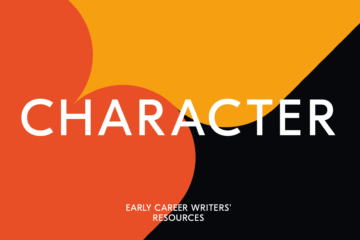This is a long, rambling post, in which I’m basically working out some ideas as I go. If you’re going to inflict it upon yourself, I suggest having access to a cup of tea and a comfy chair.
Update: This article from today’s Independent basically backs up everything I wrote below. The current power hierarchies are threatened by Twitter and Facebook, and will be attempting to shut them down or control them. Here in the UK they might do it in a slower, more surreptitious way than Egypt’s sudden shutdown, but it’s no less insidious.
Back in October 2009 I posted a rant called The idiot superclass. Inspired by then-recent cases of bigotry and prejudice while in a particularly short tempered mood, I essentially denounced most of the human race as idiotic and self-destructive and accredited any species progress and development to the ‘enlightened few’ that have struggled against 0ur crushing irrational nature since the beginning of time (to be clear, this ‘enlightened few’ definitely did not refer to any particular group – it was intentionally vague).
I’ve now come to the conclusion that most of what I wrote in that article is incorrect – or, rather, it fails to consider the bigger picture. The key flaw in my theory was to assume that humans are simply predicated to be a bit thick; that we inevitably default towards stupid and counter-productive behaviour, even when our actions are in direct opposition to our own self-interest (hence people actively voting for policies and political parties that will make their lives worse).
So what is it that I missed before? What is it that makes so many people behave so contrary to their own self-interest, and contrary to all sense?
Information is the dividing line. The quality and quantity of information that an individual has access to is what defines them. Absorbing information gives an individual the benefit of independent thought and, crucially, also gives them power over those with less information, who don’t have the tools to stand up for themselves. Information can, of course, be falsified or manipulated, which is why more information is never a bad thing: a surplus of information helps to give context, so that the facts can be triangulated to get a little closer to the truth, and move away from interpretation driven by selfish agendas.
Power is directly linked to the flow of information – or, specifically, control over that flow, and limiting it for others. This is the case for governments, corporations, or any other kind of organisation. In many cases it’s a natural and sensible approach – a private sector company can function efficiently with a strong, defined hierarchy. The military requires a definite structure to work as it does. When run by people with everybody’s best interests in mind, an information-restricted system can work well.
But when it goes bad, it goes really bad. Soldiers willingly fighting for the Nazis. young people thinking that strapping bombs to themselves will actually help their causes. Companies exploiting developing areas of the world, beyond the gaze of regulators, minimum wages and safety concerns. This is made possible by the restricted flow of information. Soldiers can be easily convinced to do anything when their information is restricted. Citizens can be convinced of pretty much anything if you control the propaganda machine, and prevent their access to outside details.
Historically, governments and monarchies have controlled communications. This wasn’t just to maintain power, it was also part of the reason they got power in the first place: as with all things, those that know how to network tend to gain influence. By building networks and controlling who has access, a hierarchy is inevitably created in which the powerful are those with the wider networks.
For most of human history this made a lot of sense. It was a clever way to organise society: in a time when communicating with anybody outside of your village was a technical or physical challenge, it would have been those with effective communications networks that were able to maintain rule of law and structure. Monarchies with extended families, governments split into regions, able to send messages from one area to another relatively quickly. It was a good way to formalise civilisation and avoid anarchy – forming groups and hierarchies must have helped us develop from primitive societies.
As technology developed, societies grew. Trains, telegrams, powered ships, telephones, motor vehicles – they all helped to improve communications, but would always by maintaining the top-down power structure. Communications tools such as television and radio provided one-way conversations, with the station or network calling the shots, and viewers passively absorbing information from either the corporation or government.
The printing press was a big threat to the standard power setup, which is why it was treated with such suspicion – suddenly printed information wasn’t solely controlled by the church or by government, but could be created and mass produced, in theory, by anybody. Wikipedia has a nice section on ‘the Printing Revolution‘.
Except, of course, printing presses still generally remained exclusive to companies, rather than individuals, due to the expensive mechanical equipment required. The same economic restrictions applied to the emerging film industry in the 20th century. While in theory it was available to all, in practice it was very different.
Computers changed things – finally everybody had printing presses in their own homes. Cheap video cameras and digital editing opened up the moving image to anybody that wanted it, especially once the mobile phone hit.
Except there was still no easy way to actually distribute the material. There was still the information firewall of The Publisher, whether it be for magazines or newspapers or books or short films. While creating information was now easy, its actual spread was still controlled by relatively small groups or individuals. This isn’t to say that publishers are inherently bad (or good) – they do of course theoretically perform a very useful service of filtering out all the rubbish so that what is published is the good stuff. And pre-21st century they were absolutely essential.
Then along came the internet. For quite some time nobody really grasped what it could be. The internet takes the printing press and unshackles it from its physical bounds, giving everybody the ability to self-publish, whether it be written word, video or audio.
For those at the top, who have traditionally been in charge, this is a bit of a problem: when your power relies entirely on control of information, what happens when suddenly everybody has equal opportunity to spread information? This is a problem for political and commercial entities. For politicians, suddenly their propaganda and spin machines don’t work so well when people can check information from other resources and instantly publish their results. Companies now have to be more truthful with advertising – and, of course, good and bad word of mouth is vastly more powerful, able to make or break a product. The entertainment industry is particularly prone to panic, as can be seen by its international attempts to increase the power of copyright and clamp down on piracy – actions that often present themselves as something of a desperate death rattle, rather than a seizing of new opportunities. When a song can be mass produced and distributed almost instantly and without restriction, how do you put a value on it? What are the new entertainment models that make sense in the new world?
In the political arena, now that people can communicate with and organise each other, what is the role of government? When people can self-organise and exchange information effortlessly, why do you need an overseer to control things? Even with benevolent governments this is a difficult and no doubt concerning thought.
With more dubiously motivated governments it’s an active threat, a direct attack. We saw the internet play a role in the on-going Arab revolutions, when information distributed by Wikileaks helped to spark uprisings, with the revolutionaries using every tool of modern communications to organise themselves. The role of the internet only became fully apparent when Egypt’s ailing regime tried to pull the plug, presumably fully aware of how much power it was affording the protesters.
The Chinese government has been ahead of the curve on this issue, as it was one of the first to realise how dangerous the internet could be, quickly imposing its nationwide firewall in an attempt to maintain control over information. It seems to have worked relatively well for them.
With supposedly non-authoritarian governments now trying to create their own Great Firewalls, regulating social media and even using tragic natural disasters to achieve their aims, there’s a limited window in which the internet will remain a powerful tool for everybody. In 5-10 years it’ll be neutered, reduced down to a sanctioned and approved list of websites that don’t upset the status quo. Unless, that is, everybody uses this opportunity to change thousands of years of hierarchical dominance.
What’s the alternative? Something I’m particularly interested in is the concept of ‘infocracy’, a term previously used to describe relatively small-scale systems whereby spread of information is prioritised, creating a flatter hierarchy in which everybody has access. An interesting quote from the thrillingly-titled book Issues & trends of information technology management in contemporary organizations (hope that link works) is as follows:
Clawson observes that the industrial revolution generated a shift in the dominant management paradigm from aristocracy to bureaucracy, and he suggests that the information revolution is spawning a similar shift from bureaucracy to infocracy.
Give people access to information and it gives them the ability to govern their own lives.
Extremism occurs for many reasons, but one is that those who are drawn to it only have access to a limited, warped perspective on events. Same goes for those deceived by cults or dodgy TV faith healers. What about people that vote for political parties that are going to do enormous damage to their own country?
In other societies, women are deliberately forbidden an education, preventing them from having the knowledge and insight to govern their own destiny. Such patriarchal societies foster the made-up belief that men should be in charge and are somehow better. The only reason this can happen, the only reason the women let it happen, is because they’re denied the information to make the choice. Even if they’re able to discover the information later in life, it’s usually too late: the mental pathways are already sown, and it’s very difficult to reshape your view of the world.
So many problems are caused or exacerbated by a lack of information. In fact, I’d argue that almost every problem is, at its source, caused by a lack of good information.
Of course, an abundance of information has its own risks as well. It can be overwhelming, or impossible to absorb efficiently. But a collective effort can work, as evidenced by Wikipedia: a project that absolutely should not work according to my ‘idiot superclass’ concept. Wikipedia, thus far, is perhaps the best and biggest example of infocracy, of what can be achieved when everybody is given equal access to information. It’s not flawless, but then neither is any system.
We’re not going to see a gentle, peaceful shift into infocracy. Our societies and power structures are based upon thousands of years of hierarchy based upon restricted information. Inevitably, those in power won’t want to usher in a new era in which everybody is on a more equal level.
What’s really needed is an offshoot: a separate, experimental society running on deep infocratic ideals, without centuries of baggage to deal with. Done properly, I suspect such a society would prosper hugely and be transformative. A demonstration that society can bind itself together differently.
I doubt such a place will exist in my lifetime. So, instead, I’m going to write some fiction and live there by proxy.



0 Comments
DJ · May 27, 2011 at 1:35 pm
Enjoyed reading this Simon. Is infocracy your word?
Simon Jones · May 28, 2011 at 11:03 am
No, it’s an established word, although most encounters I’ve had with it refer to methods of structure within an organisation, rather than a wider political/social system.